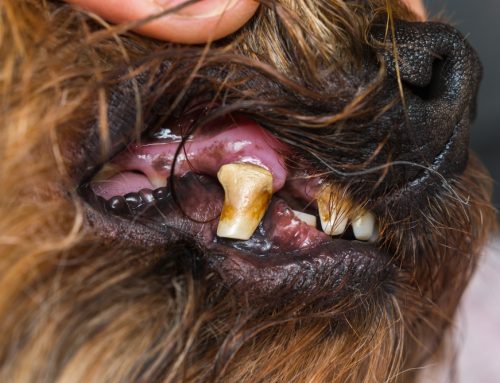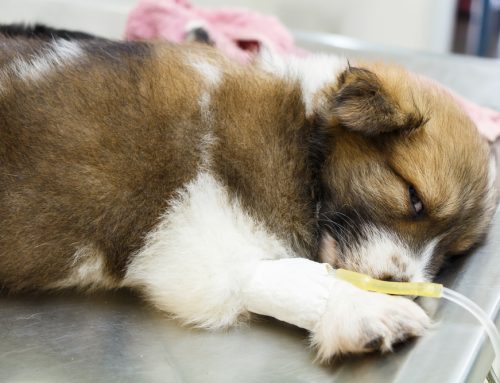Seeing your pet in an uncomfortable and potentially dangerous situation is frightening, and common sense can quickly fly out the window. We understand that you can easily panic when your furry pal is ill or injured—we do it, too!—and assume the worst. However, you do not need to sit at home worrying about your pet. We help you learn to recognize what constitutes a pet emergency with information about some of the most common emergencies seen in veterinary hospitals. Of course, you can always give our Boca Midtowne Animal Hospital team a call for advice, too.
#1: Your pet has been poisoned
Pet toxicities are common, since cats and dogs routinely sniff out hazardous substances, such as chocolate, medications, and chemicals. Whether ingested or touched, many household items are dangerous for pets. If your pet is drooling, dazed, wobbling when walking, vomiting, or having diarrhea, they may have encountered a toxin, and many toxins can act quickly. If you suspect your pet is poisoned, don’t delay—call an animal poison control helpline for expert veterinary toxicology advice, and then head to our hospital.
#2: Your pet is straining to urinate
Difficulty urinating can rapidly turn into a life-threatening emergency for your pet. Male cats are most prone to developing a urinary obstruction (i.e., becoming “blocked”), which is typically caused by urinary crystals that build up and form stones that prevent urine from traveling through the urinary tract. If your cat is constantly in and out of the litter box, meowing in pain, or frequently urinating small amounts of possibly bloody urine, they need immediate veterinary help.
#3: Your pet has developed an eye issue
Eye issues are common among flat-faced dog and cat breeds, but all pets’ eyes can be scratched or otherwise injured. Eyes are incredibly sensitive, and problems can rapidly worsen without prompt treatment. Watch your pet for squinting, ocular discharge, eye redness, or pawing at their eye, which will indicate a problem that needs emergency care.
#4: Your pet was in a traumatic accident
Traumatic accidents frequently occur when a pet darts through an open door or slips their leash, runs off, and gets hit by a car or in a fight. It’s impossible to tell the full extent of your pet’s injuries without blood work, X-rays, and possibly an ultrasound to check for organ damage, fractured bones, and internal bleeding. So, although their external injuries may not look severe, your pet may be hiding much worse inside, and needs urgent attention.
#5: Your pet is having excessive vomiting or diarrhea
The occasional bout of vomiting or loose stool is common in pets, especially if they are known for chewing on sticks, leaves, and mulch when outdoors. But, if your pet cannot keep water down, or their diarrhea continues to worsen or become blood-tinged, it’s time to head to Boca Midtowne Animal Hospital. Acute vomiting and diarrhea cases are more likely to be considered an emergency, but chronic vomiting or diarrhea that waxes and wanes also requires medical attention and a full diagnostic work-up.
#6: Your pet is having difficulty giving birth
Birthing difficulties can be life-threatening emergencies for both the mother and her unborn babies. The following birthing issues require urgent veterinary attention:
- The pet is in hard labor and has been struggling to produce a puppy or kitten for 20 minutes without any result
- The pet has not produced a puppy or kitten for more than two hours, but is still in labor
- The pet is lethargic, depressed, or has a fever higher than 103 degrees
- A puppy or kitten is stuck halfway out
If you’re unsure if your pet’s labor is progressing normally, call us for advice.
#7: Your pet is having an allergic reaction

Like people, pets can suffer allergic reactions to all sorts of substances, from vaccines to bee stings. As their immune system mounts an overactive response, your pet may start coughing, wheezing, panting, forming hives, vomiting, having diarrhea, or acting lethargic. Pets with severe allergic reactions can go into anaphylactic shock, so if your pet is struggling to breathe, or developing diarrhea, vomiting, or seizures, rush them to our hospital. Most allergic reactions occur shortly after contact, typically 30 to 60 minutes.
You may still not be certain that your pet is experiencing a true emergency, so never hesitate to contact our team. We can help triage the situation over the phone, and let you know if your beloved companion needs urgent care. Our Boca Midtowne Animal Hospital team is here for you and your pet—give us a call.







Leave A Comment